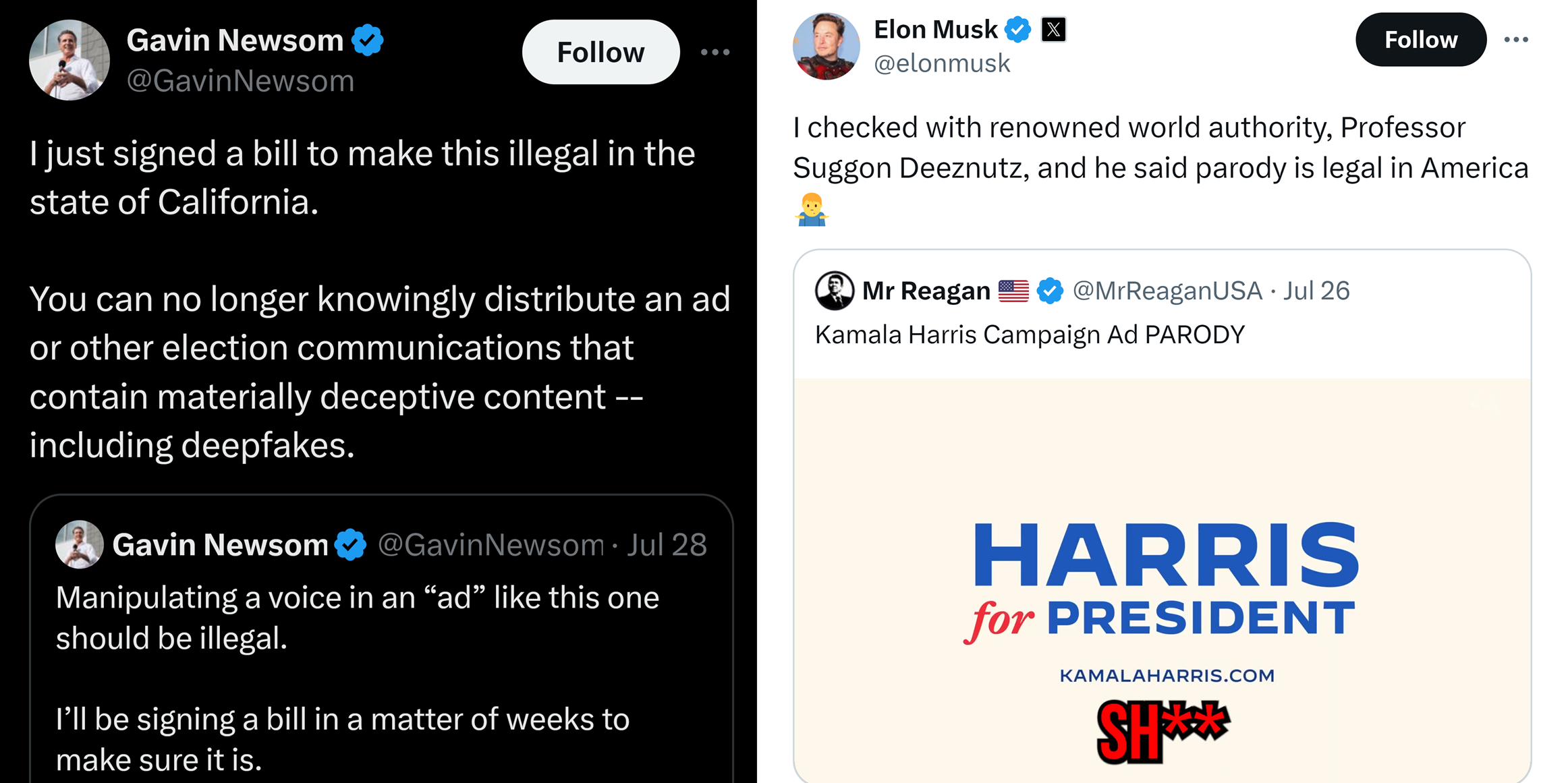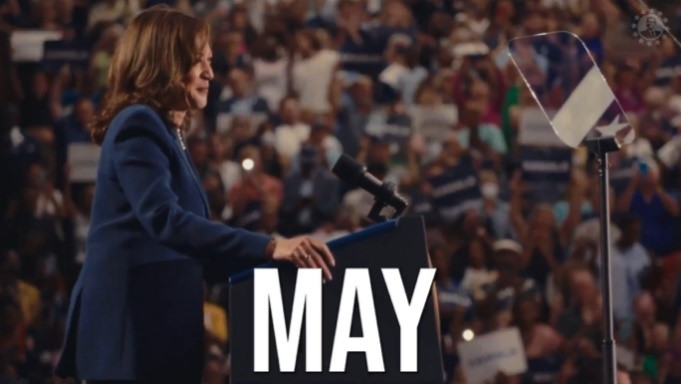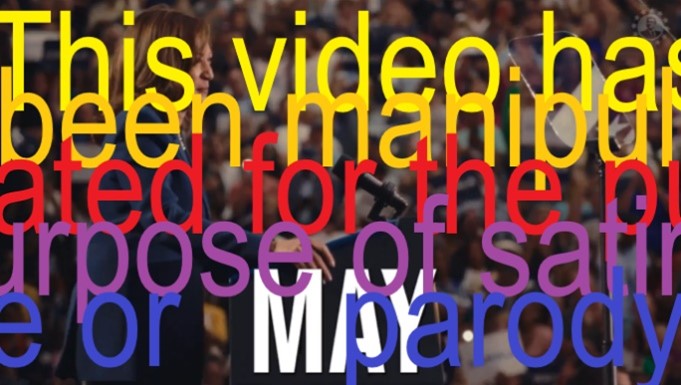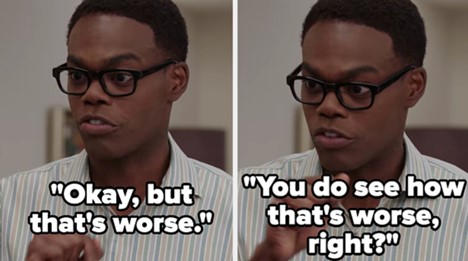On Wednesday, Gavin Newsom theatrically signed three bills. One, AB 2839, allows virtually anyone to sue those who post parody videos, images, and memes of politicians running for office—when they’re with artificial intelligence (AI). Another, AB 2655, will soon browbeat large online platforms into taking down videos that don’t satisfy California’s requirements—or else face penalties themselves.
We at the Hamilton Lincoln Law Institute (HLLI) tracked these appalling bills ever since Gov. Newsom tweeted that our client’s video “should be illegal” and that he’d sign a bill “in a matter of weeks to make sure it is.” Our client, who posts under the pen name Mr Reagan, creates political commentary on his YouTube and X (formerly known as Twitter) accounts. On July 26, he posted a parody video in the style of a Kamala Harris campaign ad, making fun of her political weaknesses with an AI-generated voiceover:
Kamala Harris Campaign Ad PARODY pic.twitter.com/5lBxvyTZ3o
— Mr Reagan 🇺🇸 (@MrReaganUSA) July 26, 2024
Lots of people found it amusing, including Elon Musk who posted the video himself.
Gov. Newsom, a campaign surrogate for Kamala Harris, apparently did not find it funny. So Newsom announced that specific protected political speech should be illegal, and weeks later followed through by signing legislation to make it illegal. There’s just one problem, as Elon Musk replied to Newsom:

An American politician infringed free speech because he couldn’t take a joke.
Newsom worked with sponsors of AB 2839 to make it more censorial by stripping out the exception for parody and satire. They gave the bill “urgency” status, to make it effective immediately upon signature. The platform requirements of companion bill AB 2655 are also challenged in Mr Reagan’s suit, and those go into effect on January 1, but AB 2839 is much more urgent for him and other political content creators who use AI tools. Right now any “recipient” of supposedly misleading parodies can sue people who post them.
We filed suit within 42 minutes of getting Newsom’s press release.
After HLLI filed the complaint, Newsom again bragged about what he had done. Musk widely publicized it, making Mr Reagan’s video go viral a second time. I find this encouraging. No matter what would-be government censors do, the internet still obeys the law of the Streisand effect.
Newsom targeted Mr Reagan, not the other way around
After HLLI filed Mr Reagan’s complaint Wednesday, reporters have asked Newsom about the suit. So far, Newsom has offered only dishonest excuses in support of AB 2839. Multiple stories have included a written PR statement from Newsom’s office:
It’s unclear why this conservative activist is suing California. This new disclosure law for election misinformation isn’t any more onerous than laws already passed in other states, including Alabama.
I really don’t think it’s actually unclear to Gov. Newsom why Mr Reagan sued. Let me explain it like you’re five.
The Governor of the largest state in the union announced his intention to censor Mr Reagan, who makes a living off the content he creates. And then the Governor signed a bill to do it. As the largest state, which is also home to several platforms, including YouTube, California’s laws affect all content creators. Unless found unconstitutional (which it clearly is), Mr Reagan cannot safely make a living doing what he loves.
If you didn’t want the law challenged, you shouldn’t have gone out of your way to censor political satire.
Political parody has been cherished in this country since before the 1787 Constitutional debates, when pseudonymous authors penned dozens of tracts in the style of their opponents, ridiculing opposing arguments using humor and hyperbole. The tradition is much older than that: Aristophanes repeatedly lampooned Athenian general Cleon in several surviving and lost plays, depicting him as a petty and litigious bully in the 420s BC. AI tools should not throw out millennia of political tradition.
HLLI plans to sue additional states over similar bills
Newsom next suggests that Mr Reagan somehow singles out California because other states supposedly have similar bills.
See, the thing is, Newsom targeted Mr Reagan. Other states’ officials have not specifically threatened to outlaw his content.
Newsom claimed at a press conference that Washington, Florida, and Alabama have similar laws, but this is not quite true either. Washington’s law only applies to paid political advertising, and Florida’s law only applies to advertising, TV, radio, newspapers, mailers, and automated telephone calls. Mr Reagan, who does not engage in campaign advertising and only posts online, isn’t threatened by those bills.
As for Alabama? For starters, that law doesn’t go into effect until October 1, and of course Alabama’s governor didn’t threaten the livelihood of Mr Reagan.
I agree that a lot of states have unfortunately passed censorious censorial AI bills in the last two years. [ed: thx for the dictionary assist, Mike Masnick]
Gov. Newsom should rest easy and know that California will not be the last state sued by HLLI concerning laws that would censor AI-generated parody.
No parody video online satisfies AB 2839
Newsom’s PR also claims the bill doesn’t ban parody, it merely requires labelling:
The person who created this misleading deepfake in the middle of an election already labeled the post as a parody on X. Requiring them to use the word ‘parody’ on the actual video avoids further misleading the public as the video is shared across the platform.
Mr Reagan’s video was labelled, but the label does not satisfy AB 2839 because it has to run for the entire length of the video and be no smaller than the largest text shown in the video.
I honestly doubt that anyone thought this through. Here’s a still image from the Mr Reagan video (which he made so that people could watch it on their phones without sound), and what trying to comply with the “disclosure” requirement of AB 2839 would look like:


It would be literally impossible to comply with the disclosure provision of AB 2839 without radically changing the content of the video. Government-compelled speech like this itself violates the First Amendment.
Even if AB 2839’s disclosure requirement was not crazypants bananas, California would be asking for thousands of pieces of content online to be taken down and reuploaded, which would be a catastrophic blow to the livelihoods of content creators, as explained in the declaration filed yesterday along with Mr Reagan’s motion for preliminary injunction. Reuploading content causes likes and interactions to be lost, which makes it less visible on platforms. Platforms like YouTube also strongly discourages reuploaded content, which it interprets as spam.
The bills threaten creators with private suits over parody
Hopefully the court grants Mr Reagan’s injunction shortly after it’s briefed by the end of next week, but this will not provide relief to other content creators until AB 2839 is declared unconstitutional.
The statute creates a new cause of action where anyone who even views content with AI-generated elements can file a complaint against those who made it—and even those who disseminated it, perhaps with nothing more than a retweet.
Gov. Newsom seemed to think this was a good thing. When asked if he would sue Elon Musk, Mr Reagan, or other creators like him, Newsom responded:
The law asserts that, uh, many can seek injunction relief.
I will respond with a meme:

For the benefit of humorless people unfamiliar with satire and the internet, neither the actor shown in the images above, nor the character he was playing, was actually commenting on AB 2839.
Newsom obviously hopes that others will do the dirty work of censorship under AB 2839. Anyone can fill out a complaint and sue over supposedly non-compliant AI generated parodies. The bill leverages the in terrorem effect of private lawsuits in an effort to make an end-run around the First Amendment.
HLLI intends to stop this.
Read more about Mr Reagan’s suit against California officials here.
